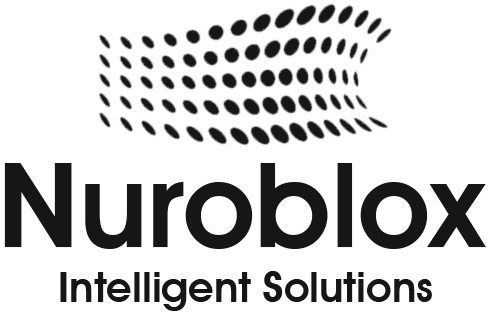
Real-Time Customer Support with Intelligent Chatbots
I ntelligent chatbots have revolutionized banking customer service by delivering instant, personalized, and secure 24/7 support that transforms traditional banking interactions. These AI-powered virtual assistants leverage natural language processing and machine learning to understand customer queries, provide accurate responses, and seamlessly escalate complex issues to human agents when needed. As banks face increasing customer expectations for immediate service while managing operational costs, intelligent chatbots have become an essential tool for achieving both customer satisfaction and operational efficiency.
Challenges
- Long Wait Times and Limited Availability- Traditional customer service operates within business hours, forcing customers to wait on hold or delay their banking needs. Peak periods and after-hours requests often result in frustrated customers and unresolved issues.
- High Operational Costs- Maintaining large customer service teams to handle routine inquiries creates substantial overhead. Banks spend significant resources on staffing, training, and infrastructure to manage the volume of repetitive queries that could be automated.
- Inconsistent Service Quality- Human agents may provide varying responses to similar questions, leading to inconsistencies in information delivery and customer experience. This variation can damage trust and create confusion for customers.
- Scalability Limitations- During peak periods like tax season or product launches, traditional customer service struggles to handle sudden surges in inquiry volume without degrading service quality.
- Limited Personalization at Scale- Providing personalized service to millions of customers while maintaining efficiency presents a significant challenge for traditional banking operations.
Solution
- 24/7 Automated Support-AI chatbots provide round-the-clock availability, instantly responding to customer queries about account balances, transaction history, branch locations, and basic banking services without any time restrictions.
- Natural Language Processing (NLP)-Advanced NLP technology enables chatbots to understand diverse phrasings, dialects, and even misspellings, accurately interpreting customer intent and providing relevant responses.
- Contextual Personalization- By integrating with CRM and core banking systems, chatbots access customer profiles and transaction histories to deliver personalized recommendations such as tailored loan offers or investment advice.
- Intelligent Escalation- For complex issues requiring human intervention, chatbots gather preliminary details and seamlessly transfer conversations to live agents along with complete context, ensuring continuity.
- Multi-Channel Integration- Deployable across web platforms, mobile apps, messaging services, and voice assistants, chatbots meet customers wherever they choose to interact.
- Secure Authentication- Multifactor authentication, biometric verification, and tokenization ensure chatbots securely verify user identity before disclosing sensitive account details or authorizing transactions.


Benefits
- Enhanced Customer Experience-Chatbots deliver near-instant responses to customer inquiries, drastically shortening resolution times and improving service quality. This leads to higher customer satisfaction, faster issue resolution, and smoother interactions.
- Significant Cost Reduction– Automating the majority of routine inquiries reduces the operational costs of customer service centers considerably. It allows banks to reallocate human agents to focus on complex, high-value customer needs, optimizing resource use.
- Improved Operational Efficiency– AI chatbots increase overall customer service productivity by handling large volumes of interactions efficiently. They help reduce average case resolution times and support a growing number of banking interactions without degradation in service quality.
- Scalable Support– Chatbots can scale effortlessly during periods of high demand, managing surges in customer requests without compromising response quality or speed, ensuring consistent service availability.
- Enhanced Security and Fraud Detection– AI capabilities enable chatbots to monitor transactions in real time, detecting suspicious activities quickly and alerting customers promptly to verify or report potential fraud, thereby strengthening security defenses.
- Valuable Data Insights– Chatbots gather comprehensive data on customer interactions and preferences, providing banks with actionable insights to continually improve services, personalize offerings, and better address customer needs.
Implementation
- Platform Selection and Architecture– Choose solutions offering low-code/no-code workflows, modular AI verification engines, and pre-built integrations with identity providers and core banking systems. Ensure the platform can handle high interaction volumes and adapt to evolving customer needs.
- Data Integration and Security– Establish seamless connections with core banking platforms, CRM systems, and knowledge bases while implementing robust security measures. This includes end-to-end encryption, secure data storage, PCI DSS compliance, and strict access controls to protect sensitive financial information.
- AI Training and Optimization: Continuously train chatbots with real customer transcripts to refine intent recognition and response accuracy. Implement ongoing performance monitoring tracking metrics such as resolution rate, handover rate, customer satisfaction scores, and average handling time.
- Regulatory Compliance: Ensure adherence to banking regulations including GDPR, AML requirements, and data privacy standards. Implement comprehensive audit trails, logging systems, and transparency measures to meet regulatory scrutiny.
- User Experience Design: Create intuitive conversation flows with clear prompts, fallback messages for unrecognized queries, and mobile-optimized interfaces. Design progressive disclosure patterns to guide customers through complex processes efficiently.
- Change Management: Develop comprehensive training programs for staff, establish clear escalation procedures, and create feedback mechanisms to continuously improve chatbot performance based on customer interactions
Conclusion
Intelligent chatbots are reshaping banking by enabling faster, more personalized, and always-available customer support. With seamless integration into core systems, they enhance service quality, reduce operational effort, and improve customer engagement. As banking moves further into the digital era, chatbots will remain a key enabler for building trust, boosting efficiency, and delivering exceptional customer experiences – provided they are implemented with a focus on security, compliance, and the right balance of automation and human interaction.




